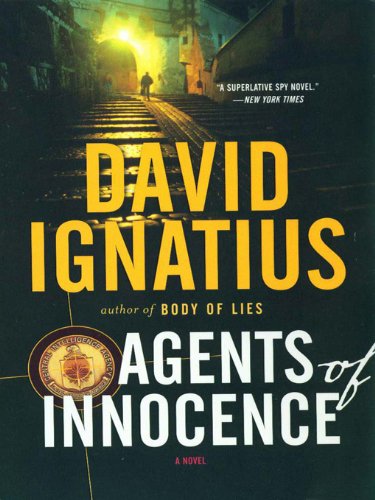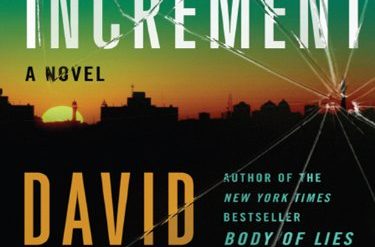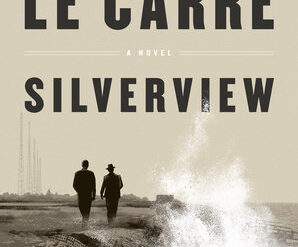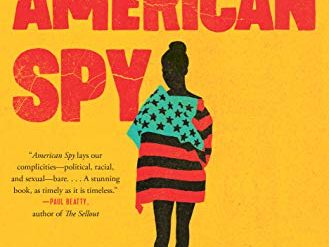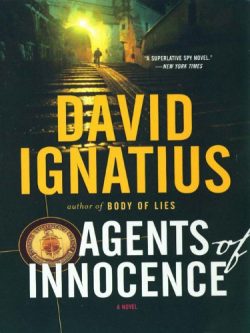
What we Americans know about Lebanon is sadly limited. Those of us who have followed international news since the 1960s are likely to have vague memories of the Lebanese Civil War, the massacre of Palestinians in the Sabra and Shatila refugee camps, and the bombing of the Marine barracks near Beirut in 1983. Few will remember more. But there is a long, sad story that undergirds this sketchy history. That’s the history Washington Post columnist and editor David Ignatius mines in his magnificent novel about the CIA and the PLO there, Agents of Innocence. And the novel is fully as nuanced and sophisticated a tale of espionage as the best of John le Carré.
The CIA and the PLO personified in two leading characters
After a Prologue set in Beirut in April 1983, the scene shifts abruptly to the fall of 1969. The following 400 pages tell the tale of CIA officer Tom Rogers and his relationship with the Palestinian Liberation Organization (PLO) that grew to maturity over the ensuing years. Rogers is an attractive figure, a husband and father of two, a fluent Arabic speaker, and an intuitive spy who often grasps reality more readily than his bosses. His counterpart in the PLO comes across early as a playboy but, like Rogers, grows into his role as the years go by. Jamal Ramlawi is the organization’s deputy director of intelligence and a favorite of “the Old Man” (Yasser Arafat, 1929-2004).
Agents of Innocence by David Ignatius (1989) 452 pages ★★★★★
The “quiet American,” updated
Like Alden Pyle, the “quiet American” of Graham Greene’s classic 1955 novel of Vietnam, Tom Rogers arrives in Beirut with little understanding of the country that is to preoccupy him for the rest of his life. In the course of the fourteen years over which this story unfolds, Rogers gains an impressive store of knowledge, even verging on wisdom. In the end, however, he remains naive in the judgment of the Lebanese who know him best. It’s worth quoting his longest-standing agent at length.
“You want to do good but don’t have the stomach for it”
“You [Americans] want so much to achieve good and make the world better,” he asserts, “but you do not have the stomach for it. And you do not know your limitations. You are innocence itself. You are the agents of innocence. That is why you make so much mischief. You come into a place like Lebanon as if you were missionaries. You convince people to set aside their old customs and allegiances and to break the bonds that hold the country together. With your money and your schools and your cigarettes and music, you convince us that we can be like you. But we can’t. And when the real trouble begins, you are gone. And you leave your friends, the ones who trusted you the most, to die.”
Though Ignatius wrote this book more than three decades ago, it would be hard to find a more poignant or relevant commentary on the American adventures in Afghanistan and Iraq.
No simple clash between black and white
Do not expect the simple clash of good and evil, black and white, Arab and Jew, from Agents of Innocence. There is evil aplenty, of course. It could hardly be otherwise in a tiny nation wracked by civil war and terrorist bombings. But the men and women of this story are complex, every one of them—Palestinian, American, Israeli, and Lebanese alike. Ignatius is a fine writer who stoutly resists pieties and platitudes.
About the author
David Ignatius was the Wall Street Journal‘s Middle East correspondent from 1980 through 1983, during which time he covered the wars in Lebanon and Iraq. Since 1986 he has worked at the Washington Post, first as an editor, and, starting in 1999, as a columnist, too, writing on global politics, economics and international affairs. Ignatius’s coverage of the CIA has been criticized as being defensive and overly positive, but that judgment reflects later developments in his thinking. In Agents of Innocence, depicting the evolving relationship of the CIA and the PLO, the Agency does not come across favorably despite the heroic efforts of the novel’s protagonist.
For related reading
I’ve also reviewed six of David Ignatius’s other novels of espionage:
- Siro (1991) – The most intelligent spy novel I’ve read in many years
- A Firing Offense (1997) – A suspenseful espionage story about journalists and spies
- The Increment (2009) – A gripping novel about Iran and the CIA
- The Paladin—The latest from David Ignatius is a little hard to believe
- Phantom Orbit—War in space may be closer than you think
- The Quantum Spy—The race with China for a quantum computer
To explore the parallels between the work of the CIA in Indochina and Lebanon—both of them, by the way, French dependencies—check out The Quiet American by Graham Greene (The classic Vietnam novel by Graham Greene).
You might also enjoy my posts:
- The 15 best espionage novels
- Good nonfiction books about espionage
- The best spy novelists writing today
- Top 10 mystery and thriller series
- 20 most enlightening historical novels
- Top 10 historical mysteries and thrillers
And you can always find my most popular reviews, and the most recent ones, on the Home Page.

